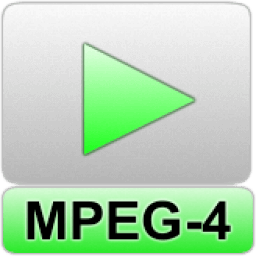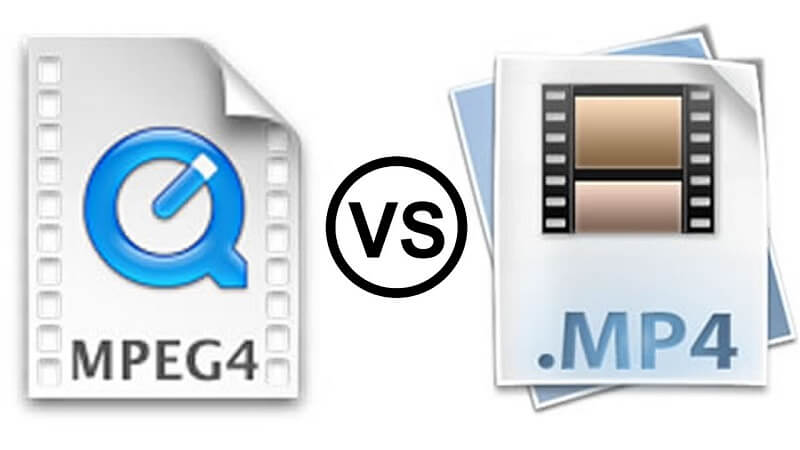Differences between MPEG4 and MP4 [Updated 2026]
MPEG4 vs. MP4; what’s the difference between the two? Lots of people are confused about these two and most people think that MP4 is simply an abbreviation of the word MPEG4. They believe that these two are identical media containers that can be used to store audio codec, video codec, and subtitles.
However, the truth is these two are different. MP4 is a container format. On the other hand, MPEG4 is an algorithm for video encoding. In this article, we will dig deep into the differences between MP4 and MPEG4. Read on to learn more…
Contents GuidePart 1: MPEG4 Vs MP4Part 2. How To Convert Video File Formats To MP4Part 3. In Conclusion
Part 1: MPEG4 Vs MP4
In this section, we will discuss what is MPEG4 and what is MP4. We will first discuss the two separately; then we’ ll delve into the differences between the two.
#1: What is MPEG4?
MPEG4 is known as a method of determining the compression of digital data, both audio and also visual (AV). This method was established in 1998. Agreed on by MPEG (Moving Picture Experts Group) and the ISO as a standard for coding formats, it is used for compression of audio-visual data for streaming data within the World Wide Web, CD distribution, and videophone and telephone (voice). MPEG4 also has applications within the industry of broadcast television.
MPEG4 has absorbed a lot of the features offered by MPEG1 and MPEG2. It has added new features as well. MPEG4 is an efficient coding algorithm for various bit rates that range from a few KBs per second to about ten of MBs per second.
The MPEG4 algorithm has a lot of functions. First, it improved the efficiency of coding over that of the MPEG2. Second, it can encode media that are mixed. For instance, data that has audio, video, and speech can be encoded with MPEG4. Third, MPEG4 is also built to be resilient to error. Thus, the transmission of data becomes robust.
In addition, MPEG 4 enables a lot of functions for developers, end-users, and service providers. It allows hardware and software developers to form multimedia objects that are both flexible and adaptable. Thus, this leads to improved quality of services in animation graphics, the Internet, and digital television.
Data network service providers also utilize MPEG4 for transparency of data. Due to standard procedures, data encoded by MPEG4 can actually be interpreted and then transformed into other types of signals that are compatible with other networks. In addition, the MPEG4 format also allows users to have a broad interaction range with a variety of animated objects.
#2: What Is MP4?
In order to learn more about MPEG4 vs. MP4, we will discuss what the latter is first. MP4 is a file extension. It is especially used for streaming and downloading videos from the net. This file format is highly versatile and can put audio, video, subtitles, and images into storage.
MP4 files were created and set as a standard by MPEG and ISO/EIC. The said file format is the internal standard when it comes to coding audio-visual (AV) data. It is based on the.MOV QuickTime format. MP4 is actually a digital multimedia container format. This means it is a file that stores lots of data that has already been compressed.
Since MP4 files are highly compressed, the files are usually of a smaller size compared to other video file formats. When you reduce the size of the file, the quality is not significantly compromised. Usually, the original quality is kept. Thus, MP4 is great for portability and is also web-friendly. MP4 files can be used to play audio. However, it is not identical to that of MP3 and M4A. These two file formats contain audio-only.
Since MP4 files is an international standard, almost all playback software for videos support it. To open MP4 files, you simply double click it. Usually, the default playback software will launch to open the video. iOS and Android devices also support MP4 files. Simply tap the file icon and you'll be able to watch MP4 files on your mobile devices. macOS and Windows users can also play MP4 files without having to use third-party apps.
That’s it! That’s what MP4 and MPEG4 are. Below, we’ ll tell the differences between MPEG4 vs. MP4 for you to understand it better.
#3: MPEG4 Vs. MP4
The main distinction between an MPEG4 and an MP4 is that the former is an encoding algorithm for videos. The latter, MP4, is not an algorithm but is a multimedia container. MP4 files can truly have its own MPEG4 video that is actually encoded through a variety of codes.
Part 2. How To Convert Video File Formats To MP4
You might want to use MP4 as your main file format for videos. This is because it is the international standard and is supported by most devices. In order to convert your videos to MP4, we suggest using DumpMedia Video Converter.
The said tool can convert a variety of file formats from one type to another. In addition, it can be used to enhance the quality of your videos and add a watermark. DumpMedia Video Converter is a tool with a lot of functions and capabilities. It can also be used to download videos from sites such as YouTube and Vimeo. You can use it to download audio from sites such as SoundCloud as well. All in all, DumpMedia Video Converter is a tool that will satisfy your multimedia desires. If you want to know more about how to use the Dumpmedia Video Converter, you can click this page.
Part 3. In Conclusion
In this guide, we have shown the difference between MPEG4 vs. MP4. The main difference between the two is that the former is an algorithm for encoding video. MP4, on the other hand, is a media container format.
MP4 is a widely used file format that can contain video, audio, subtitles, and images. It is supported by most devices and operating systems. That’s why you might want to convert your files to MP4 type in order to make sure you can use your videos across various devices.
For this, we recommend DumpMedia Video Converter. It is a great tool that can convert videos into multiple formats. In addition, it can be used to download audio and video from sites. Overall, DumpMedia Video Converter is a robust tool with a lot of features.

30% Off >>>
